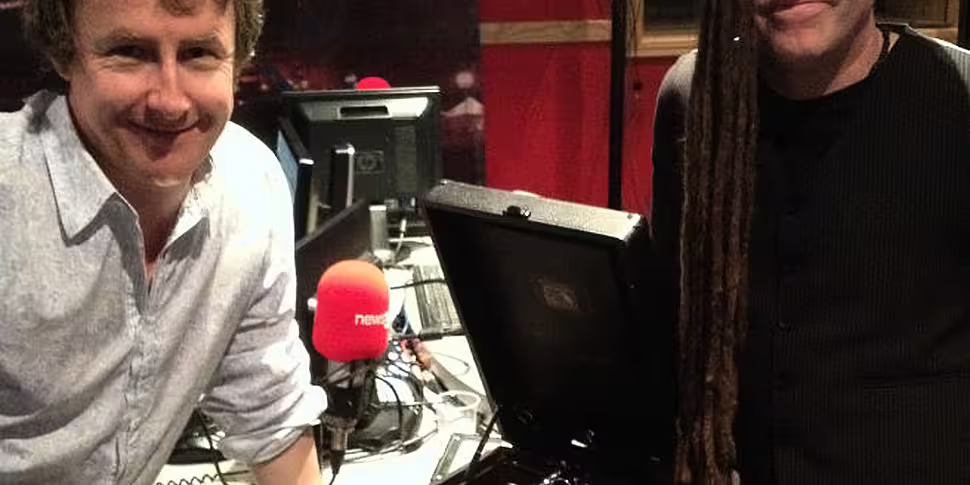In advance of his 'Gramophone Club' gig at the Liquor Rooms, Duke Special joined Tom during the week to talk about his love of the gramophone and 78RPM records.
Tom already plays at least one vinyl each night on the show. However, Duke brought the show's audience back to an even earlier era of recorded music, that of the 78RPM shellac which was the standard way of experiencing recorded music from the late 19th century until they ceased general manufacture in the mid 1950s.
Duke brought his 'Picnic Gramophone' into studio to play his shellacs. This is an early type of portable music box which is essentially a mini gramophone which allowed listeners to actually bring their music out into the open, indeed on a picnic. Watched enthusiastically by Tom, Duke unsheathed his Sister Rosetta Tharpe shellac and placed it on the gramophone. He then cranked it up manually (no batteries or electricity required), at which point the sweet crackle ,which is so synonymous with old records, filled the studio.
From 1925, 78RPM became the standardized speed of revolution. However, the amount of content that can be fitted on a shellac is limited to about 3 to 5 minutes on each side - about enough time for one song. A shellac is made from crushed and hardened beetle shells. This means that they are very brittle and have none of the flexibility of a vinyl.
During the session, Duke played the following songs: 'This Train' by Sister Rosetta Tharpe, 'Daniel' by Professor J Earl Hines and 'Goodnight Irene' by Leadbelly.
Here is a link to a You Tube video of a 'Picnic Gramophone' in action:









